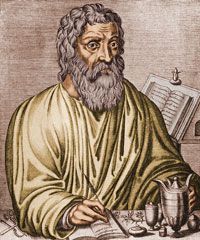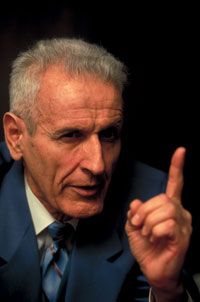The Hippocratic Oath is a document that has survived -- and remained relevant -- for more than 2,500 years. Conceived by the ancient Greek physician Hippocrates, commonly referred to as the father of medicine, the oath is a cornerstone of medical ethics [source: PBS]. Hippocrates had a rational perspective of medicine and sought out common sense explanations for diseases rather than ascribing supernatural causes to them. By his death in 377 B.C., Hippocrates had become the most well-known physician in Greece.
Today, there are classical and modern versions of the Hippocratic Oath. The commonly used maxim "do no harm" comes from the classical version, although the oath itself does not contain this exact phrase. (The oath does require doctors to "keep [patients] from harm" [source: PBS].) The classical oath is dedicated to the ancient Greek gods, including Apollo, and explicitly bars euthanasia and abortion. It calls on doctors to maintain confidentiality and to refrain from having "sexual relations" with people in the houses they visit [source: PBS]. Additionally, the classical Hippocratic Oath prohibits doctors from performing surgery: "I will not use the knife."
Advertisement
Dr. Louis Lasagna, dean of the School of Medicine at Tufts University, wrote the modern version of the oath in 1964. His interpretation emphasizes caring, sound treatment, humility, compassion and acknowledgment of a patient's humanity. It also mentions the importance of prevention by maintaining good health.
Most Western medical students say an oath, whether it's the Hippocratic Oath or a modern interpretation of it. Lasagna's modern version is considered more appropriate for the realities of today's world. Common criticisms of the classical oath include its invocation of the ancient Greek gods and its prohibitions against abortion, euthanasia and any form of surgery. The classical version also instructs that doctors should teach aspiring physicians "without fee and covenant" -- essentially, for free, which is generally impractical in an era when medical facilities, supplies and faculties require significant financial investments [source: PBS].
Like any old document, the Hippocratic Oath can be seen as dated and in need of adaptation to reflect changes in societal standards, technology, medical science and health care practices -- like abortion and euthanasia, or assisted suicide. On the next page, we'll take a look at a document that may eventually supplant the Hippocratic Oath.
Advertisement

